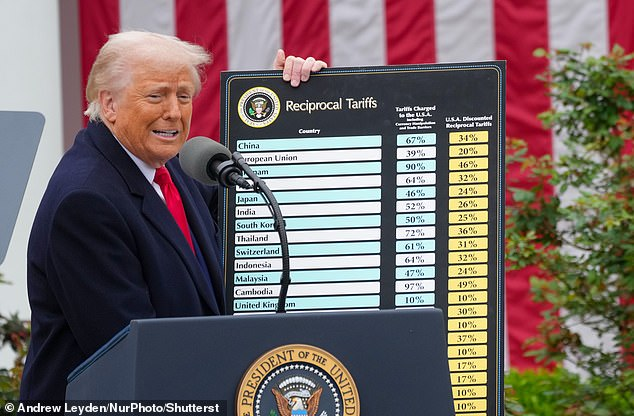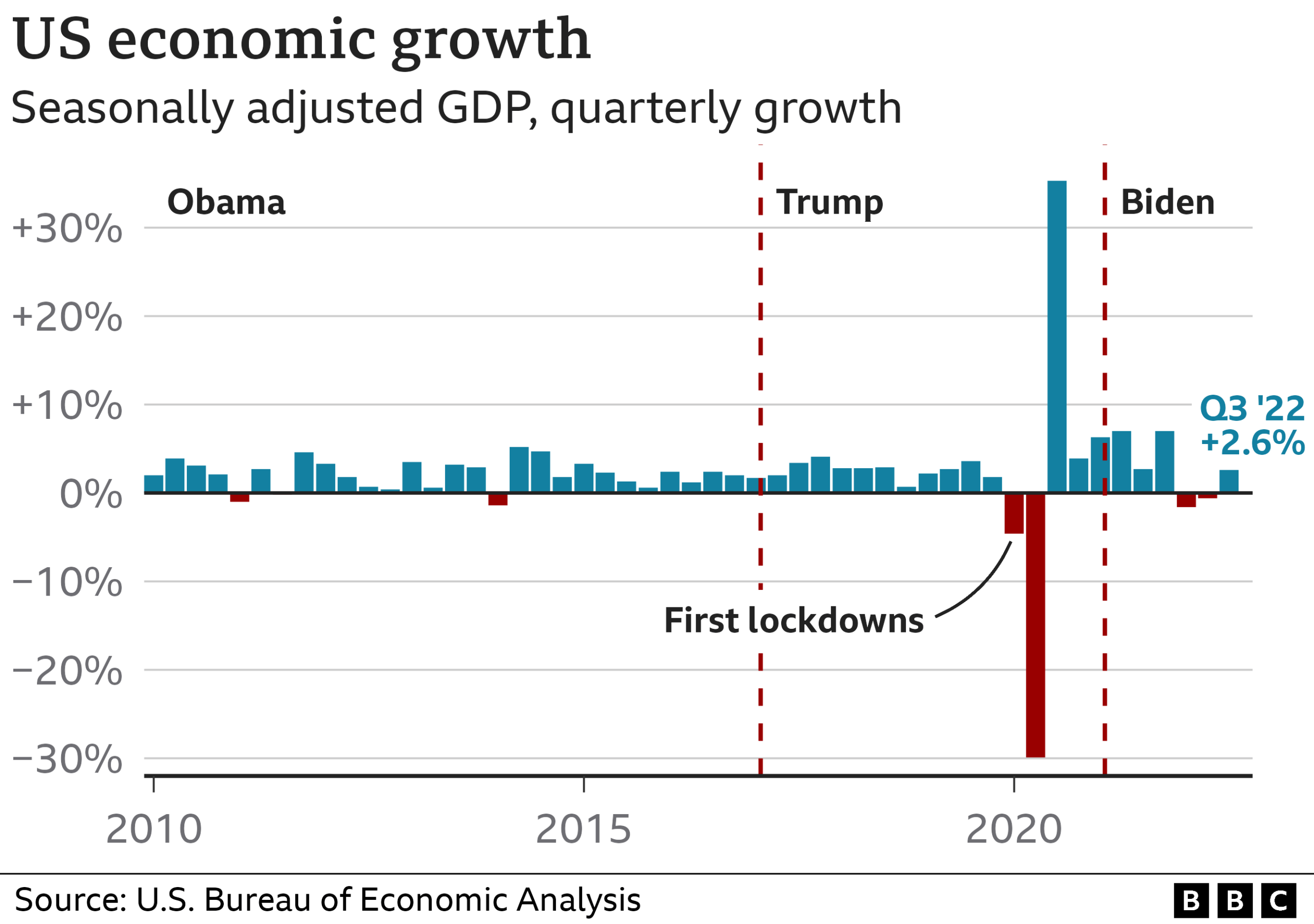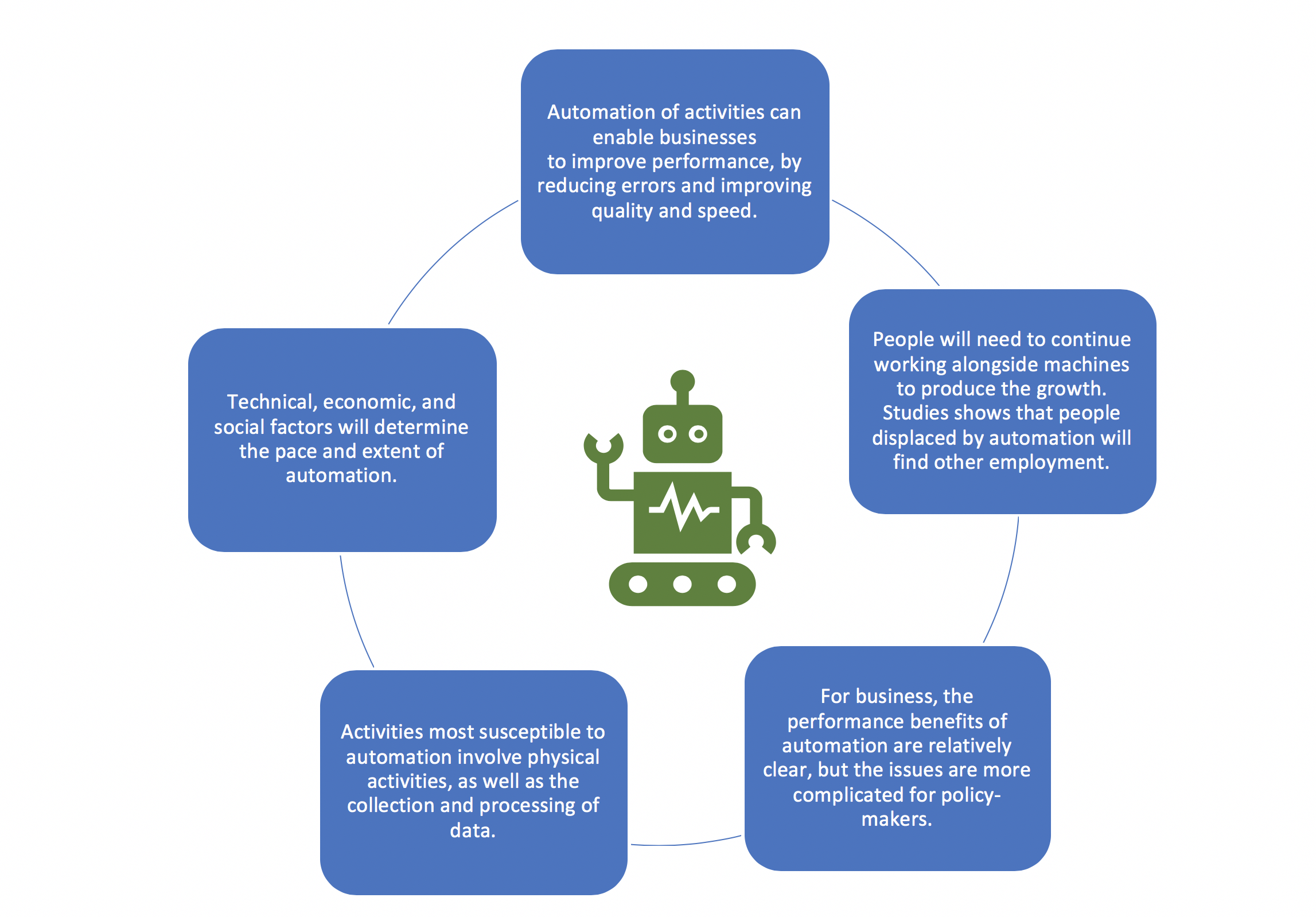
Tariffs have become a hot topic in recent discussions about U.S. trade policy, especially with figures like Senator Rick Scott advocating for them as a means to bolster American industry. By imposing tariffs, the government aims to protect U.S. workers from foreign competition, particularly from China, which many see as a major economic adversary. The impact of tariffs can be multifaceted, affecting not just the price of goods but also the broader economy by reshaping trade deficits and market dynamics. Scott’s viewpoint highlights a belief that these trade barriers could level the playing field, encouraging domestic production and reducing the dependency on foreign imports. However, this approach has sparked debate among economists regarding its potential long-term effects and whether it truly benefits American workers or incurs higher costs for consumers.
In the realm of international commerce, duties or tariffs play a pivotal role in shaping trade relationships and economic outcomes. Measure designed to impose taxes on imports are often viewed as tools that can stimulate domestic manufacturing while simultaneously sparking tensions with trade partners. Many policymakers, including prominent figures, argue that these levies are essential for safeguarding local jobs and reducing trade imbalances, particularly with countries like China. However, critics caution that such tariffs could convolute market operations and trigger retaliatory measures, complicating global trade tensions. As discussions unfold around the efficacy of these protective measures, understanding their broader implications on the economy becomes increasingly crucial.
Understanding the Impact of Tariffs on U.S. Workers
Tariffs have long been a focal point in discussions about U.S. trade policy, and their impact on domestic workers cannot be underestimated. Senator Rick Scott strongly believes that tariffs will level the playing field, enabling U.S. workers to compete more effectively against foreign industries. By imposing tariffs, the government aims to reduce the advantages that foreign competitors, particularly those in China, have enjoyed for years. The premise is that with stronger protection through tariffs, American workers can sell more goods domestically and internationally, therefore boosting job security and wages.
However, the real impact of tariffs can be more nuanced. While some sectors may benefit, others may face increased costs due to higher import prices, leading to inflationary pressures. Economists like Jason Furman argue that tariffs can trigger a chain reaction that ultimately harms the economy. As American manufacturers face high costs for raw materials that rely on imports, they may pass on these expenses to consumers, leading to price hikes on everyday goods. It’s a complicated balance, and while the intention is to protect U.S. jobs, the outcome may not be as straightforward.
Rick Scott’s Perspective on U.S. Tariff Policy
Senator Rick Scott is an avid supporter of the tariff strategy initially championed by President Trump. He argues that by imposing tariffs, particularly on countries like China, the U.S. can pressure these nations to lower their own restrictive trade barriers. Scott insists that this approach is beneficial for American workers, as it allows them to sell more products without the limitations imposed by other countries. His stance reflects a broader strategy aimed at reducing trade deficits and encouraging U.S. manufacturing, which many feel is essential for strengthening the national economy.
Despite Scott’s optimism, the effectiveness of such tariffs is met with skepticism among many economists. Critics argue that the heavy tariffs placed on imports, especially the staggering 145 percent on Chinese goods, could exacerbate inflation and lead to reduced consumer spending. The economic landscape is already feeling the strain, with global market reactions showing volatility since the introduction of these tariffs. Scott’s approach may resonate with those who prioritize national interests, but the broader consequences of his policies remain a contentious subject in economic discussions.
The Controversy Over Trade Deficits and Tariffs
The issue of trade deficits is central to the debate on tariffs. Proponents like Rick Scott argue that enforcing tariffs can contribute to closing the trade gap, allowing domestic manufacturers to thrive under more equitable conditions. The hope is that as tariffs make foreign goods more expensive, consumers will pivot to purchasing American-made products. This, in turn, could invigorate the domestic economy by creating jobs and increasing wage rates, presumably prompting an overall enhancement of the American workforce.
However, the counterargument indicates that tariffs may not be as effective in closing trade deficits as proponents believe. Critics maintain that while tariffs can provide temporary relief, they do not address the underlying issues that contribute to trade imbalances. Factors such as global supply chain dynamics and consumer preferences play significant roles in trade deficits. Therefore, while tariffs might offer a tactical approach in the short term, they may fail to produce lasting solutions to the nation’s economic challenges.
The Economic Ramifications of China Tariffs
The imposition of tariffs on China has stirred considerable debate about economic ramifications. Senator Scott’s insistence on a hard line against Chinese trade shows a strategic move to diminish what he perceives as a significant threat to U.S. economic prosperity. With the tariffs set at a staggering 145 percent, the intention is clear: to protect American jobs and deter China’s competitive influence by making their products prohibitively expensive in the U.S. market. This approach reflects a protective economic stance aimed at bolstering the domestic manufacturing sector.
Nevertheless, these tariffs also risk escalating trade tensions that may lead to retaliatory measures from China, which could adversely affect American exporters. The cycle of retaliatory tariffs can create barriers that stifle both economies, leading to job losses in sectors reliant on international trade. As the global economy becomes intertwined, the implications of Scott’s policies on China tariffs underscore a crucial intersection between protectionism and the necessity for cooperative trade relations.
Balancing Tariff Strategies and Inflation Concerns
The balance between protecting American jobs through tariffs and addressing inflation concerns remains a complex dilemma. Senator Scott has acknowledged that the introduction of tariffs raises uncertainty regarding their potential effects on inflation. As prices for imported goods rise due to tariffs, there is a strong possibility that these increases will seep into the domestic economy, leading to higher costs for consumers. This situation demands careful consideration as policymakers navigate between the need for economic protection and the stability of consumer prices.
In his discussions, Scott posits that achieving a balanced budget and reducing spending may be crucial steps towards containing inflation. However, without a concrete plan for balancing tariffs with economic growth, the risks of inflation could overshadow the intended benefits. The challenge lies in ensuring that tariffs not only protect domestic interests but also promote overall economic health, maintaining a keen eye on consumer impacts while pursuing national fiscal goals.
Tariffs and the Future of U.S. Trade Relations
The future of U.S. trade relations is significantly shaped by the recent tariff policies that have been implemented. Senator Scott’s perspective highlights a pivotal shift in how the U.S. engages with global markets, particularly with competing nations like China. Moving forward, it remains crucial for policymakers to consider the long-term implications of these tariffs on international relationships and trade partnerships. A rigid tariff policy may foster short-term gains for domestic workers but could hinder constructive dialogue and negotiations in the broader scope of international trade.
As the U.S. navigates its policy landscape, it is important to reassess the need for tariffs in light of evolving economic conditions. Strategic tariff implementation could provide valuable leverage in negotiations, but there is a fine line between protecting domestic interests and fostering healthy trade relations. The ongoing debate will likely focus on finding a balance that not only addresses immediate economic concerns but also lays the groundwork for sustainable international collaborations that benefit the U.S. economy in the long run.
Tariff Implications for Manufacturers and Consumers
The implications of tariffs extend significantly to both manufacturers and consumers within the U.S. economy. For manufacturers, especially those relying on materials imported from foreign countries, the rising costs associated with tariffs can lead to escalations in production expenses. This situation can result in manufacturers either absorbing the cost, which can reduce profit margins, or passing those costs onto consumers, leading to an inflationary cycle. Senator Scott’s emphasis on domestic manufacturing aims to counteract these effects, but the initial implementation of tariffs poses challenges that need to be addressed.
Consumers, on the other hand, are caught in the crossfire of these economic strategies. As tariffs raise prices for imported goods, consumers face higher costs for a variety of products. This can disproportionately affect low- and middle-income families who spend a significant portion of their income on consumer goods. Short-term protective measures may inadvertently lead to long-term economic strain on households, highlighting the importance of holistic economic policies that consider the ramifications of tariffs on everyday Americans.
Addressing Economic Volatility Through Tariff Policy
The economic volatility triggered by recent tariff policies presents a significant challenge for the U.S. Senate and economic strategists. Senator Scott acknowledges that while imposing tariffs was designed to protect the U.S. economy, it has also led to unpredictable market reactions. The sharp contraction in GDP and the subsequent loss of trillions in market value underscore the precarious balance of utilizing tariffs as a protective measure. These developments serve as a potent reminder of the interconnectedness of the global economy and the need for careful governance of trade policies.
To address this volatility, a comprehensive assessment of trade policy effectiveness is necessary. Policymakers must weigh the benefits of tariffs against their potential to induce market instability. Implementing a more nuanced tariff strategy that considers economic feedback can help mitigate adverse effects while still pursuing the goal of protecting U.S. interests. Striking this balance is crucial as the U.S. navigates its role on the world stage, ensuring that while the economy is fortified against foreign competition, it does not fall vulnerable to the very strategies intended for protection.
Evaluating the Long-term Effects of Tariffs on the Economy
As the U.S. continues its journey through a complex tariff environment, evaluating the long-term effects of these policies on the economy becomes increasingly important. Senator Scott believes that a strong tariff approach will protect American workers and enhance domestic manufacturing. However, economic experts caution that the potential long-term impacts could diverge significantly from these optimistic expectations. A balanced approach that includes regular assessment of tariffs and market conditions will be crucial to ensuring economic health going forward.
The long-term sustainability of any trade policy relies on its ability to adapt to changing global dynamics. As economies evolve, tariffs that once seemed beneficial may create unforeseen challenges in international relations and domestic economic stability. Maintaining an agile trade policy that can respond to external pressures will be vital for fostering a robust economic environment that prioritizes both growth and stability. Ultimately, understanding the long-term implications of tariffs will require careful, ongoing analysis and an openness to revisiting established policies.
Frequently Asked Questions
What are the potential impacts of tariffs on the U.S. economy?
The impact of tariffs on the U.S. economy can be significant, leading to increased prices for consumers and disruptions in trade. While proponents, like Senator Rick Scott, argue that tariffs level the playing field for American workers by encouraging domestic production, critics suggest they may escalate trade deficits and harm overall economic growth.
How do Rick Scott tariffs compare to previous U.S. tariffs policies?
Rick Scott tariffs emphasize a tough stance on countries like China, contrasting with previous U.S. tariffs policies that often involved negotiations. The current approach aims for aggressive tariff rates to pressure foreign countries into reducing their own tariffs on American goods, despite concerns about potential negative impacts on the U.S. economy.
Can tariffs help reduce trade deficits?
Advocates believe that higher tariffs can lead to reduced trade deficits by encouraging Americans to buy domestic products instead of foreign imports. However, many economists argue that while tariffs may temporarily shield U.S. production, they can ultimately contribute to economic inefficiencies that might worsen trade deficits in the long run.
What effects do China tariffs have on American businesses?
China tariffs, particularly the high rates placed on imports, can have mixed effects on American businesses. While they may protect certain domestic industries, they also result in increased costs for U.S. companies that rely on Chinese goods, potentially leading to higher prices for consumers and reduced competitiveness.
Will tariffs lead to inflation in the United States?
The relationship between tariffs and inflation is complex. Some experts, including Senator Rick Scott, express uncertainty about how tariffs will affect inflation. While tariffs can lead to higher prices for imported goods, the overall impact on inflation also depends on other economic factors such as consumer demand, spending, and domestic production.
How do tariffs affect U.S. workers, according to Senator Rick Scott?
Senator Rick Scott argues that tariffs can benefit U.S. workers by protecting domestic industries from foreign competition and encouraging American production. He believes that reducing barriers for U.S. products can enhance job opportunities, although some economists contend that high tariffs may also lead to job losses in sectors reliant on international trade.
What is the rationale behind the current U.S. tariffs policy?
The current U.S. tariffs policy aims to address perceived imbalances in trade and protect American jobs, especially in strategic sectors. Proponents argue that these tariffs are necessary to compel trading partners to lower their barriers and ensure fair competition, particularly with countries like China.
Are tariffs effective in protecting American manufacturers?
Proponents of tariffs, like Senator Rick Scott, argue that they effectively protect American manufacturers by creating a more level competitive environment. However, critics argue that the long-term effectiveness of tariffs is debatable, as they can lead to retaliation and disrupt supply chains, ultimately harming the very manufacturers they intend to protect.
| Key Points | Details |
|---|---|
| Rick Scott’s Position | Supports Trump’s tariffs to help U.S. workers and level the playing field with other nations. |
| Tariff Rates | Currently, a 10% tariff rate is applied to most nations, while China faces a staggering 145% tariff rate. |
| Economic Impact | Recent tariff implementations have led to volatility in global markets and a reported $6 trillion loss in stock market value. |
| Scott’s View on China | Believes no trade should occur with China to avoid potential conflicts. |
| Concerns on National Debt | Advocates for a balanced budget to improve fiscal outlook amidst a projected $20 trillion debt. |
| Inflation and Tariffs | Uncertain if tariffs will lead to inflation; suggests balancing the budget as a solution. |
Summary
Tariffs play a crucial role in shaping the U.S. economic landscape as advocated by Senator Rick Scott. He believes these tariffs will empower American workers and rectify trade imbalances, particularly regarding China. While there is significant controversy over the impact of tariffs on the economy, Scott maintains that they are essential for protecting U.S. interests and manufacturing. As tensions with China escalate, the discussion around tariffs becomes even more significant, indicating a pivotal moment in U.S. trade policy.





